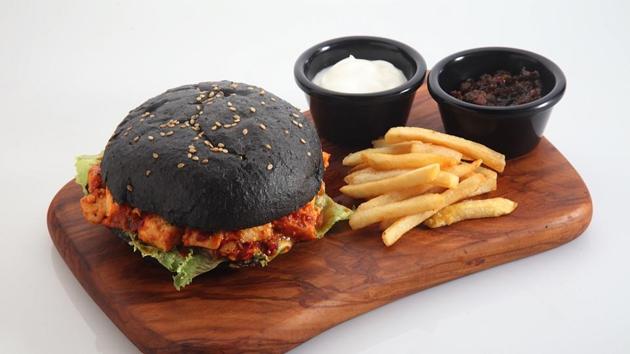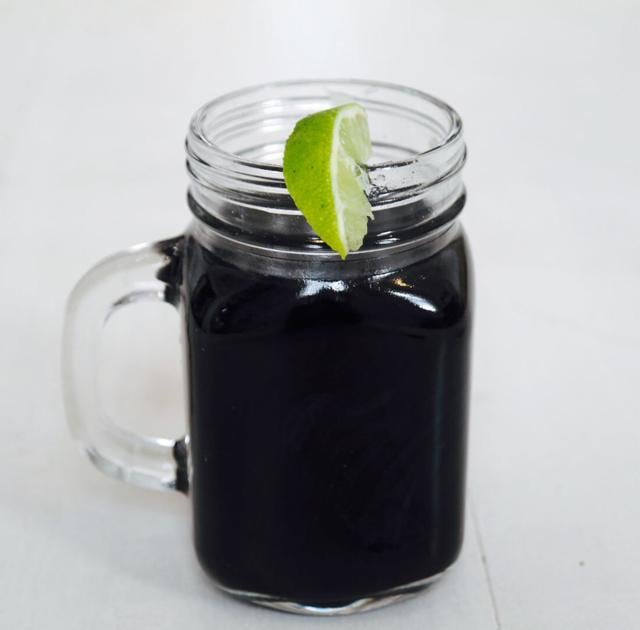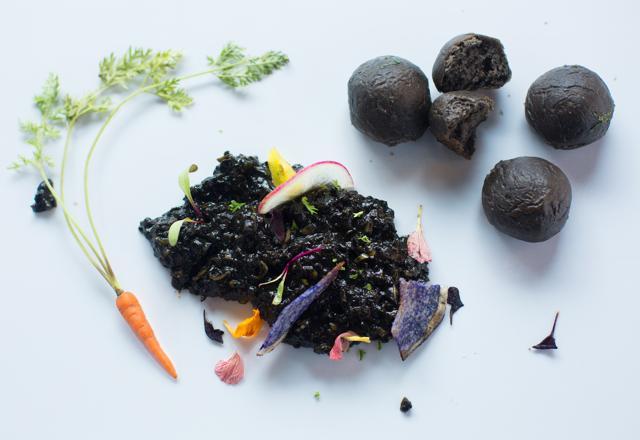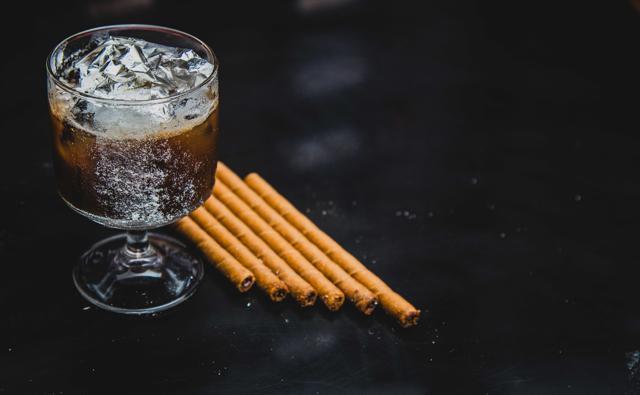Why adding activated charcoal to dishes is the newest food trend
Eateries across the city are using activated charcoal in various food and drinks. But does it actually help detox or is it a passing fad?
In January, cold-pressed juice brand, Raw Pressery, launched a new detox drink. The colour is a curious black, thanks to the addition of activated charcoal — an age-old ingredient believed to absorb and flush impurities 100 times its size. Overcoming our initial reservations about the unappealing colour, we take a sip. It tastes sandy with the sourness of lemon and the sweetness of agave nectar.

Two months later, we find ourselves at Street Nights (a culture and food event) during the Dubai Food Festival and try a charcoal lemonade. This time, we don’t mind the texture and actually savour the drink.

Activated charcoal is increasingly being used as a key ingredient across restaurants and bars in Mumbai. MasalaBar (Bandra) serves a charcoal pav bhaji, while Olive (Khar) offers a smoked salmon with avocado mousse in a charcoal bagel. And it’s not just food: it is also used in soaps and face-packs that promise glowing skin.
READ MORE: All you need to know about matcha tea
Arjun Chaudhary, who is set to launch a restaurant, No Vacancy Bar Kitchen in Bandra, terms it the latest ingredient chefs are playing around with. “It pairs beautifully with a woody scotch and gives a sleek look to cocktails. It is also a cure for hangover. A few grams of activated charcoal mixed in water offers relief when consumed immediately,” he says.
Origin story
Activated charcoal is made by burning coconut shells and collecting the carbon, which is then immersed in hot water. This extract is believed to absorb 100 times its weight. So, theoretically, one tablespoon of charcoal can absorb an entire football field of charcoal.
There is a significant difference between charcoal and coal: the former is edible, while the latter is not. Marketed today as an ingredient beneficial for a detox, charcoal has traditionally been used for dental care and as a cure for flatulence. Charcoal-based carbon filters have also been employed to purify water.

Like most food trends, using activated charcoal, too, was popularised by the West. Reality TV star Kim Kardashian and actor Gwyneth Paltrow swear by activated charcoal in cold-pressed juices, and charcoal latte is now a rage in the US, and even the Middle East.
Saurabh Modi, head chef at MasalaBar, says the black hue that activated charcoal adds to a dish is an effective way to attract patrons’ notoriously fleeting attention. “We started using activated charcoal as a gimmick element, to have some fun with the regular pav bhaji. Initially, people ordered it because they were curious to try it. Guests also like to take a picture and put it up on social media,” he says.
Weighing the benefits
But why would you want charcoal-infused dishes on your plate, you may wonder. For one, activated charcoal bonds with toxic substances and gets rids of them. “However, you need to be careful with how much charcoal is used in the dish. As a supplement, 75mg of activated charcoal is recommended twice a day,” says Karishma Chawla, a nutritionist at consulting firm EatRite 24/7.

As for the colour, it takes time to grow on you. But interestingly, apart from being a detox ingredient, the very fact that it’s black could also help you in watching your calorie intake. Food consultant Anjali Peswani says, “Visually, each colour gives us a specific feeling. If you want to lose weight, it is recommended that you eat in a black plate or bowl.”
However, the ingredient du jour has its fair share of critics too. After all, there no studies to substantiate its detoxifying effect, food historian Pushpesh Pant points out. “Though charcoal has been used as a purifying agent and for medicinal purposes, its activation dates back to the mid-19th century. This is a passing fad that piggybacks on a blend of modern science and traditional home remedies,” Pant opines.
We won’t be surprised if activated charcoal gets passed on for something newer and fancier. For now, if the health benefits aren’t convincing enough, bear in mind that black-coloured burgers and cocktails make for trendy Instagram pictures.
Give it a shot
1) Carbon bhaji, carbon pao
Mumbai’s beloved street snack gets a twist. Even the pao served is infused with activated carbon.
Where: MasalaBar, Carter Road, Bandra (W); Price: Rs 295; Call: 84519 00257
2) BBQ Paneer
The activated charcoal gives the bun a crisp, burnt texture.
Where: The Rolling Pin, Lower Parel; Price: Rs 275; Call: 46104610
3) Detox drink
Fancy activated charcoal in your beverage? Raw Pressery has got you covered.
Available on: rawpressery.in; Price: Rs 150





